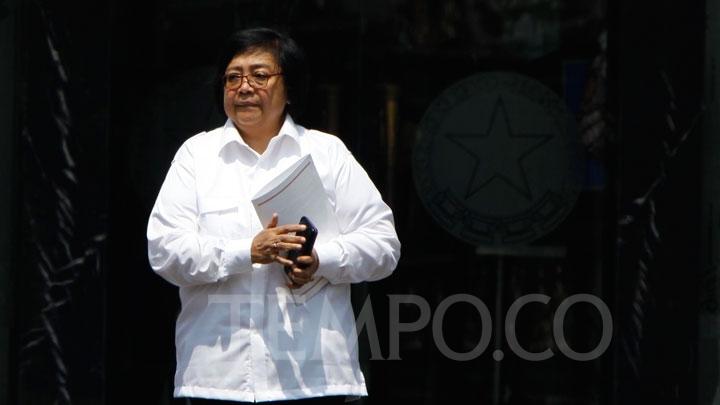
TEMPO.CO, Jakarta - The Environment and forestry ministry has decided to end its cooperation with WWF Indonesia. This is a sign that nationalism and resentment of criticism have gone too far.
The move by the environment and forestry ministry to end its cooperation with the WWF Indonesia Foundation will do more harm than good. As well as not being based on transparent communication, the decision to break links seems not to have been properly thought through.
The government’s split with the WWF as laid out in Ministerial Decision No. SK.32/Menlhk/Setjen/KUM.1/1/2020 dated January 10, clearly breaches the procedures agreed between the two sides. The cooperative working agreement specifies that any plan to end the relationship must be conveyed at least six months before a final decision is taken. However, in this case, the letter of evaluation of the agreement and the decision to stop the cooperation were both sent by the ministry in October 2019. This type of violation of procedure could be seen as legally flawed, leading to the annulment of the decision.
The decision by Environment and Forestry Ministry Minister Siti Nurbaya effectively canceled around 30 WWF projects in a number of national parks that were being managed jointly with the environment and forestry ministry. This is despite the fact that the cooperation in the conservation of wildlife such as rhinoceroses, elephants, and tigers, along with a number of environmental conversation programs, dates back to 1962, and should have continued for another three years. Without financial support from the WWF, amounting to around Rp350 billion every year, a number of environment ministry field officers have said that they do not know how they will be able to fund their activities.
In its letter, the environment ministry mentioned a number of reasons behind its decision. Firstly, the scope of WWF’s work was seen as exceeding the bounds of the agreement. Therefore, WWF’s activities outside the conservation of wildlife were seen as not having a proper legal basis. WWF Indonesia was also judged to have breached the principles of the cooperation agreement by publishing partial claims about its achievements. There was also the problem of WWF’s social media campaigns, which it was claimed were not in accordance with the facts.
Of course, the government has every right to evaluate non-governmental organizations that it works with. However, strangely, Minister Siti Nurbaya refused any form of communication regarding her decision. Normally, if there is an evaluation of a cooperative agreement, the party under investigation is invited and asked to explain itself. In this case, Siti did not give WWF Indonesia any opportunity to explain the background of its actions that the government had been complaining about, yet alone correct any mistakes it may have made.
At a time when the threat of a climate crisis is increasingly real and our environment is not being protected properly, Minister Siti’s unilateral move has left a big question mark. There is the impression that the government has been making too much of trivial matters, such as the Facebook status of a celebrity who criticized the burning of forests, rather than developing synergies to preserve the ecosystem. This is especially true if there is any truth to the complaints from a number of NGOs that the environment ministry is increasingly sensitive towards criticism of the government’s environmental conservation performance.
The destruction of forests in Indonesia clearly deserves serious attention from us all. Forest Watch Indonesia has said that the deforestation rate between 2013 and 2017 reached 1.47 million hectares per year. This is a dramatic drastic increase compared with the five previous years. With such destruction, the government and NGOs have no choice but to work together.
The contribution of the WWF to nature conversation in Indonesia cannot be ignored. In 2018, the WWF announced that it had observed a Sumatran rhinoceros in East Kalimantan – previously it was not known that these animals lived there. It also played a role in the project to manage and conserve the Sebangau National Park in Central Kalimantan, which is now a habitat for 600 Kalimantan orangutans. Then there is the involvement of the WWF in the Ujung Kulon National Park, Banten since the 1960s. Stopping all of this cooperation will harm the conservation efforts already underway.
In the future, Minister Siti Nurbaya should change the way she views the role of NGOs in cooperating to conserve the environment. Criticism from these organizations is a bitter pill that the government must swallow for the good of the public. Overreacting and being too sensitive to criticism, yet alone fanning the flames of misplaced nationalism, is like shooting itself in the foot.
Read the Complete Story in this Week's Edition of Tempo English Magazine























